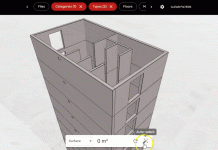Ian Ronksley, Accreditation Development Manager at UKAS, explains what is being done to provide accreditation for BIM certification.
In the last edition of PBC Today, Jon Murthy, Marketing Manager at the United Kingdom Accreditation Service, explained how accreditation provides confidence in the certification provided to support many different aspects of the construction industry such as quality and environmental management systems as well as the certification of construction related products and materials. UKAS, as the National Accreditation Body, assesses and accredits a wide range of organisations that provide testing, inspection, calibration and certification services against internationally recognised standards. The whole purpose of accreditation is to provide confidence to consumers, purchasers and regulators in the competence and impartiality of these organisations.
Another aspect of certification that is becoming increasingly prevalent is certification for BIM. In part, this has been driven by a reference in the Government Construction Strategy (GCS) which requires fully collaborative BIM Level 2 as a minimum on all centrally procured government projects. This requirement is reflected in PAS 91, a model prequalification questionnaire for the construction industry, which contains a number of questions concerning the suppliers’ BIM capability and procedures. There is, however, an exemption from these questions for organisations with accredited certification to PAS 1192 Part 2.
How does this work in practice?
The answer is not very well. This is because the requirements of PAS 91 oversimplify the requirements of BIM Level 2 and there is more to BIM Level 2 than PAS 1192 Part 2 (e.g. PAS 1192-5:2015). Also, PAS 91 does not specify that the accreditation must be specific to BIM, only that it is a ‘related UKAS accreditation’. So, while there are a number of organisations offering certification to PAS 1192 Part 2, the various certification schemes on offer take different approaches to compliance with BIM Level 2. Some offer certification of personnel for specific aspects of BIM; others offer certification of organisations for their general management of BIM. None address the full requirements of BIM Level 2. Furthermore, none of these certification organisations are yet accredited specifically to certify for BIM.
In order to try to resolve this situation, the government, in the form of the Department for Business, Energy and Industrial Strategy (BEIS) and the Centre for the Protection of National Infrastructure (CPNI), as the key government stakeholders, is looking to promote a common approach to BIM Level 2 certification. This common approach once agreed, would provide a clearer basis for accreditation thereby providing greater confidence in the certification provided, avoiding confusion for those seeking certification for their BIM Level 2 activities and thus ultimately help to deliver the Construction Strategy.
BEIS and CPNI have therefore asked UKAS, as the National Accreditation Body, to consider how a common approach to accredited certification for organisations offering BIM Level 2 services can be delivered. Once a common approach has been agreed by BEIS and CPNI, it is anticipated that a pilot assessment programme will be undertaken to develop the necessary assessment and accreditation capability for this activity in accordance with international conformity assessment standards.
Is there a demand for certification?
UKAS has undertaken an exercise to gauge the level of interest of certification bodies in achieving accreditation by establishing what BIM Level 2 certification is currently offered, the precise scope of certification (including details of the specific ‘requirements’ for certification) and the interest in any pilot accreditation project for this activity. A number of certification bodies have expressed an interest in taking part in the pilot assessment programme, but the information provided on existing schemes has confirmed the diversity of offerings available. UKAS is currently working on a number of different options for a common approach.
There is still a considerable amount of work needed, but it is hoped that outline proposals will be available for consideration by BEIS and CPNI later in the summer.
Certification bodies interested in taking part in any pilot assessment programme should contact alison.severn@ukas.com
Ian Ronksley
Accreditation Development Manager
The United Kingdom Accreditation Service (UKAS)
info@ukas.com














